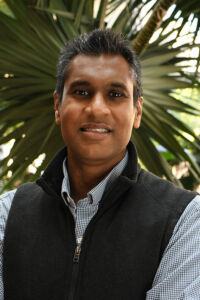Krishanu Saha
Home Department: Biomedical Engineering
Location: 330 N Orchard Street, 4164
Education: BS, Cornell University
MPhil, University of Cambridge
PhD, University of California–Berkeley
Lab website: http://sahalab.bme.wisc.edu
Human cell engineering including CRISPR gene editing and epigenetic reprogramming; science & society



